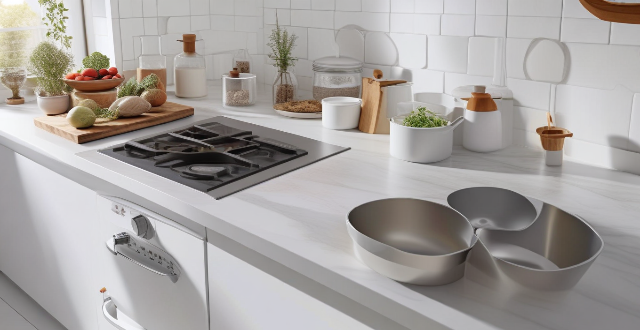Cross-contamination in kitchens can be prevented through various methods, including maintaining personal hygiene, proper food preparation, using correct cooking techniques, implementing appropriate storage practices, following cleaning routines, and managing waste effectively. These practices are crucial for ensuring food safety and avoiding foodborne illnesses.

How Can Cross-Contamination Be Prevented in a Kitchen?
Cross-contamination is the transfer of harmful bacteria, viruses, or other microorganisms from one object, surface, or food to another. In a kitchen setting, preventing cross-contamination is crucial for maintaining food safety and avoiding foodborne illnesses. Here are some effective ways to prevent cross-contamination:
Personal Hygiene
- Wash Hands Frequently: Always wash your hands with soap and warm water for at least 20 seconds before handling food, after handling raw meat, poultry, or seafood, and after using the restroom.
- Use Gloves Appropriately: If you choose to use gloves, make sure to change them often and wash your hands before and after wearing them. Remember that gloves can also spread bacteria if not changed frequently.
Food Preparation
- Separate Raw and Cooked Foods: Keep raw meats, poultry, seafood, and eggs separate from ready-to-eat foods like fruits, vegetables, and cooked dishes. Use separate cutting boards and utensils for these items.
- Avoid Contaminated Surfaces: Clean and sanitize all surfaces, including countertops, cutting boards, and utensils, after they come into contact with raw proteins.
Cooking Techniques
- Cook Thoroughly: Ensure that all foods are cooked to their proper internal temperature to kill any potential harmful bacteria.
- Use Separate Utensils: Use separate cooking utensils for raw and cooked foods to avoid cross-contamination during the cooking process.
Storage Practices
- Store Properly: Keep raw meats, poultry, and seafood on the bottom shelf of the refrigerator to prevent juices from dripping onto other foods. Store produce separately in the crisper drawer.
- Date and Rotate Foods: Label stored foods with dates to ensure they are used in the correct order and to avoid consuming expired products.
Cleaning Routines
- Regular Cleaning: Establish a regular cleaning routine for all kitchen surfaces, appliances, and equipment. This includes floors, walls, and exhaust systems.
- Sanitize Properly: Use appropriate sanitizing solutions to disinfect surfaces and tools that come into contact with food. Follow the manufacturer's instructions for effective use.
Waste Management
- Proper Disposal: Dispose of food waste regularly and securely to prevent attracting pests and bacteria growth. Use airtight containers for garbage and clean them frequently.
- Recycle Where Possible: Compost food scraps where possible to reduce waste and contribute to sustainability efforts.
By implementing these practices consistently, you can significantly reduce the risk of cross-contamination in your kitchen. Remember, prevention is key when it comes to food safety and health.